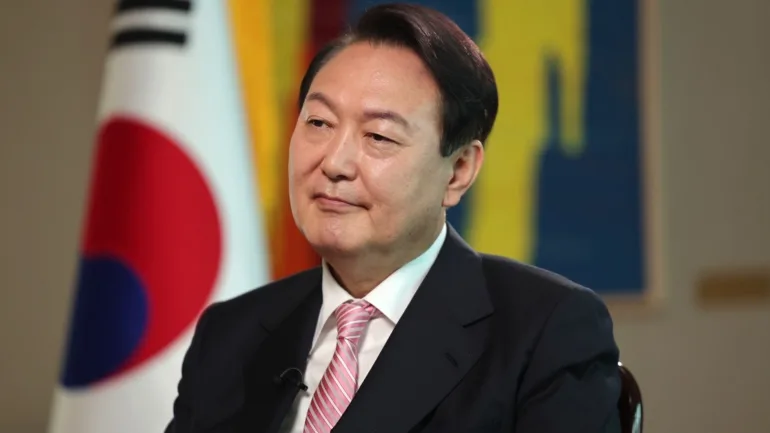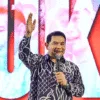Impeached South Korean President Yoon Suk Yeol has remained defiant inside his residence for a third consecutive day on Thursday, resisting arrest after vowing to “fight” authorities seeking to question him over his failed martial law bid.
Yoon’s controversial declaration on December 3, which led to his impeachment, has left him facing arrest, imprisonment, and potentially even the death penalty. The embattled leader’s actions have sparked widespread political turmoil, with both supporters and opponents gathering outside his official residence. Yoon’s security team has blocked several police attempts to execute a raid, leading to a dramatic stand-off.
Despite the mounting pressure, Yoon has remained unrepentant. He issued a defiant statement on Thursday, asserting that South Korea is in danger from both internal and external forces threatening its sovereignty. His words, distributed to protesters, echoed his continued refusal to accept the impeachment, and he vowed to “fight alongside you to the very end to protect this nation.”
“I watched the hundreds-strong protest on Wednesday evening on a YouTube livestream,” Yoon added, reinforcing his resistance as the expiration of his arrest warrant on January 6 approaches. His lawyer, Yoon Kab-keun, confirmed that the impeached leader remains inside the presidential compound.
Opposition lawmakers were quick to condemn Yoon’s rhetoric as inflammatory. Democratic Party spokesperson Jo Seoung-lae labeled him “delusional” and accused him of attempting to incite violence. Meanwhile, Yoon’s legal team has filed an injunction to block the arrest warrant, calling the order “unlawful and invalid.”
Blocked raids and legal challenges
The investigation into Yoon has been complicated by efforts to block his arrest. The head of the Corruption Investigation Office (CIO), Oh Dong-woon, warned that anyone obstructing authorities could face prosecution. A Seoul court issued both an arrest and a search warrant for Yoon’s official residence, but his security team has prevented police from carrying out the search.
Citing provisions in South Korea’s Criminal Procedure Act, Yoon’s security service has refused to allow authorities access to locations where official secrets are stored, without his consent. Historically, attempts to arrest lawmakers in similar circumstances have been hindered by supporters blocking police raids, as seen in the early 2000s.
Behind the scenes, discussions continue between prosecutors and police about how to proceed with Yoon’s arrest, amid a backdrop of deepening political crisis. The situation has brought South Korea to the brink of a constitutional and social crisis, evoking memories of the country’s turbulent military dictatorship era.
The martial law controversy
Yoon’s martial law order, intended to root out “anti-state elements,” lasted only a few hours before being overturned by parliament. Armed troops had stormed the national assembly building, but lawmakers quickly mobilized to block the move, forcing Yoon to backtrack. Following the failed attempt, parliament stripped him of his presidential duties and Yoon now faces charges of insurrection.
Since the martial law debacle, Yoon has refused to comply with summonses for questioning on three separate occasions, intensifying his defiance. He has also continued to allege that the opposition is collaborating with South Korea’s communist adversaries.
Supporters have flocked to Seoul, rallying behind Yoon and voicing vehement opposition to his impeachment. Protesters have clashed with police and waved placards calling for his reinstatement. The constitutional court is set to decide whether to uphold Yoon’s impeachment.
Political fallout and new developments
The political crisis deepened late last week when Yoon’s replacement, Han Duck-soo, was also impeached by parliament for failing to sign key bills related to investigations into Yoon’s actions. In response, Finance Minister Choi Sang-mok has assumed the role of acting president and vowed to restore stability. However, his decision to appoint two new judges to the constitutional court, a key demand from the opposition, has sparked criticism from Yoon’s allies, who argue that Choi is overstepping his authority.
As South Korea teeters on the edge of a full-scale political collapse, the nation watches closely as the constitutional court prepares to rule on the impeachment, and the future of its embattled president hangs in the balance.
AFP


